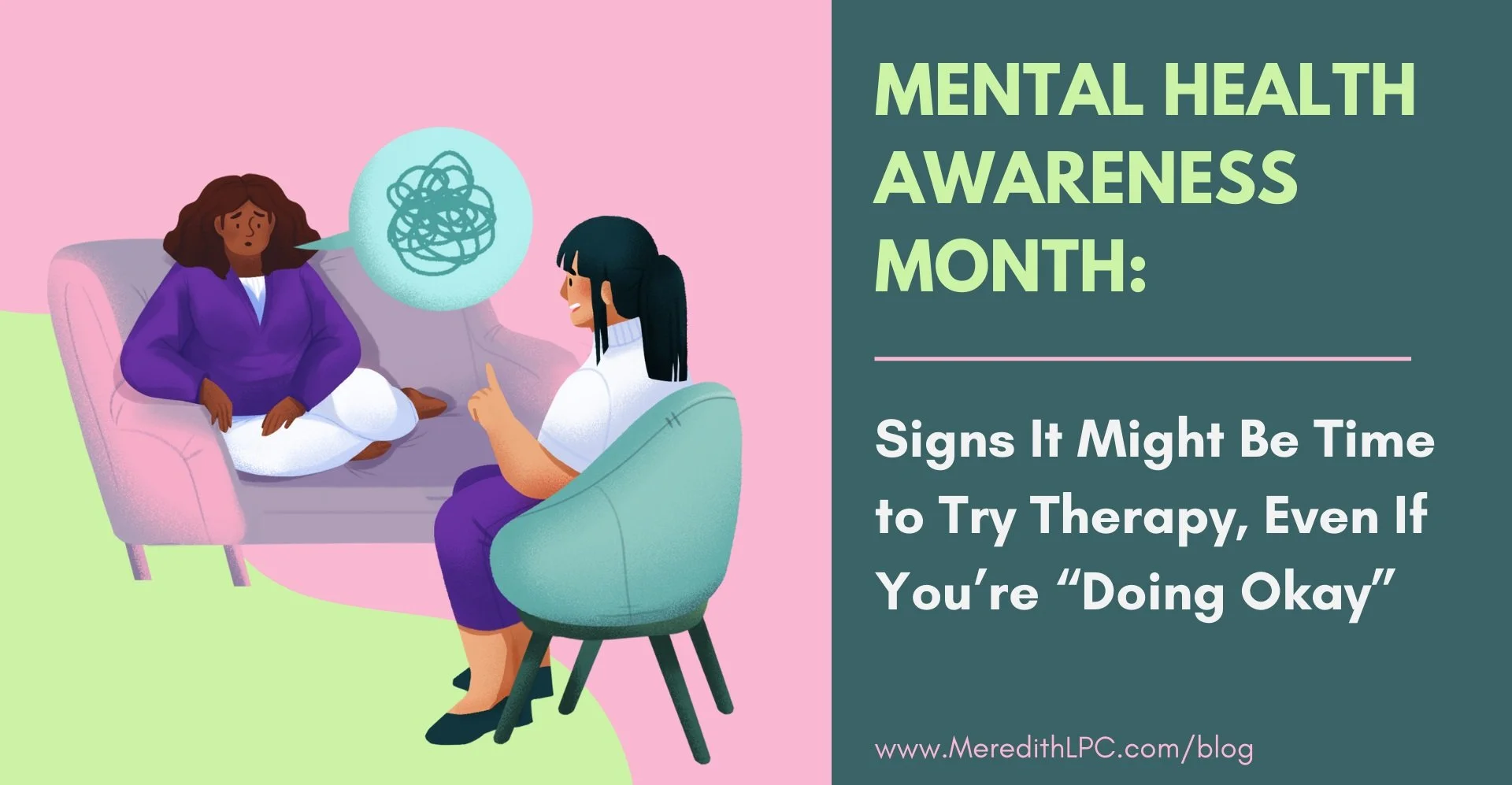Mental Health Awareness Month: What Mental Health Looks Like Across the Lifespan
Most people don’t think about how mental health changes as we age—but it really does, and it matters at every stage of life.
In honor of Mental Health Awareness Month, I want to talk about how our emotional needs and mental wellness evolve across the lifespan. Whether you're in your 20s or your 70s, therapy can play a valuable role in helping you manage life’s ups and downs.
Mental Health in Your 20s and 30s: Finding Your Footing
This stage is all about transitions—graduating, starting a career, forming serious relationships, or even becoming a parent. It’s also a time when anxiety, depression, and self-esteem struggles often surface. Many people come to therapy for help with:
Identity development and life direction
Relationship issues and boundary-setting
Career stress and imposter syndrome
Managing anxiety or mood disorders
Therapy in your 20s and 30s can provide support as you figure out who you are and how you want to show up in the world.
Mental Health in Your 40s and 50s: Balancing It All
By midlife, many people are juggling careers, caregiving, parenting teens, or dealing with aging parents. It can feel like you're constantly on the go—but emotionally running on empty.
Common therapy themes in midlife include:
Burnout and stress management
Marital or relationship issues
Navigating life transitions (empty nest, divorce, career changes)
Grief or loss
Reconnecting with personal goals and identity
Therapy can help you make sense of this busy, complex season—and give you space to prioritize you again.
Mental Health in Your 60s and Beyond: Meaning, Purpose, and Change
Mental health doesn’t stop mattering when you retire. In fact, this stage often brings its own emotional challenges, such as:
Adjusting to retirement and changing roles
Health issues and physical limitations
Grief and loss of loved ones
Loneliness or social isolation
Reflecting on life’s meaning and legacy
Older adults may also seek therapy for unresolved issues from earlier in life—or simply because they want a safe space to talk through big feelings.
Life Doesn’t Always Follow a Timeline
While these are common mental health themes in each stage of life, it’s important to remember that people can experience these challenges at any age. A 25-year-old might be processing grief after the loss of a parent. A 60-year-old might be struggling with identity issues they never had the space to explore earlier in life. Life events like trauma, illness, parenting, career shifts, or relationship changes can bring up unexpected emotional struggles—no matter when they happen.
Therapy meets you where you are, not where you’re "supposed" to be. Everyone’s timeline is different—and mental health doesn’t follow a strict calendar.
Mental Health Care Is for Everyone
No matter your age or life stage, your mental health matters. Therapy isn’t just for people in crisis or for people of a certain age—it’s for anyone who wants to feel better, live more fully, or better understand themselves.
If you’re curious about how therapy could support your mental health right now, I’d love to help. My practice offers virtual therapy for adults of all ages in Georgia and Florida. You can contact me today to get started.
Let’s make your mental wellness a priority—this month and every month.
Related Articles: Mental Health Awareness Month: How I Care for My Own Mental Health as a Therapist
Mental Health Awareness Month: How to Support a Friend or Loved One Who’s Struggling
Mental Health Awareness Month: Considerations for Developing a Routine to Support Your Mental Health
Mental Health Awareness Month: Signs It Might Be Time to Try Therapy—Even If You’re “Doing Okay”


